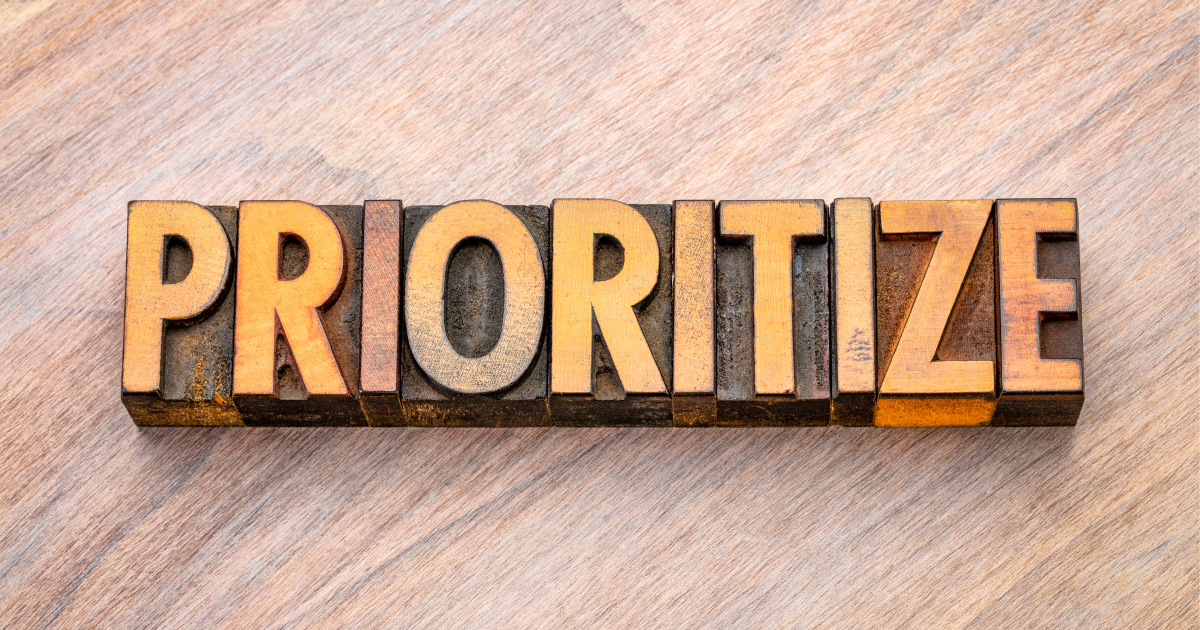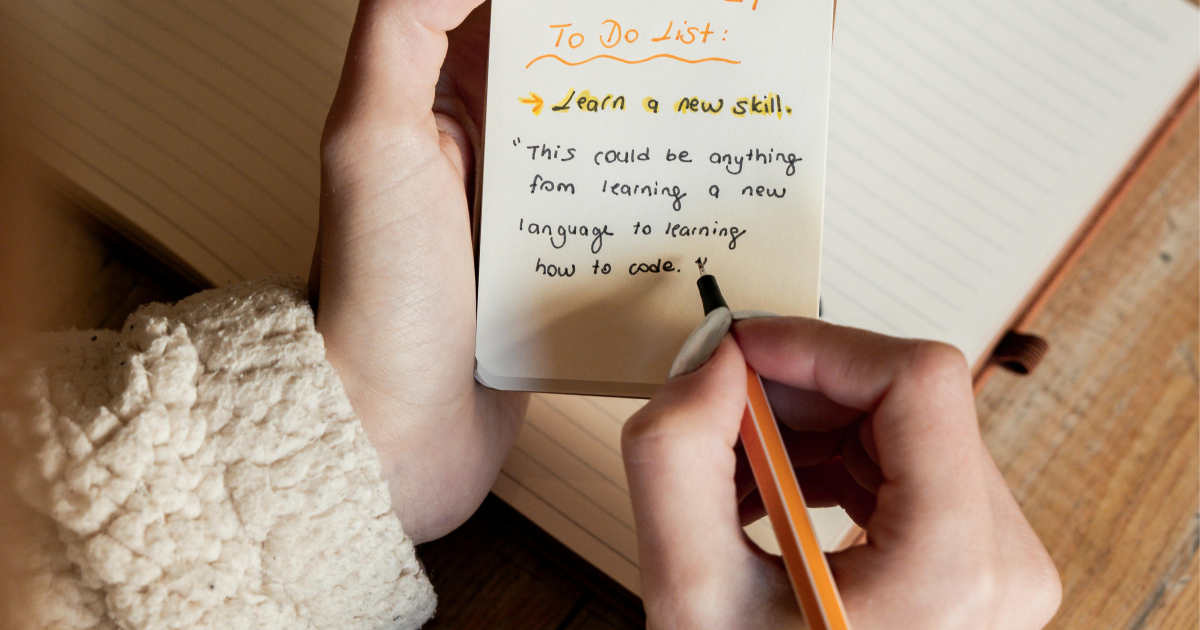Every January, like clockwork, the buzz of “New Year, New You” fills the air. It’s everywhere – on social media, in conversations, even in emails promising a fresh start. There’s an undeniable excitement, but also a creeping anxiety. It can feel like the world expects you to flip a switch and become someone new overnight.
Sound familiar?
If you’ve ever felt the pressure to make massive changes as soon as the calendar changes, you’re not alone. I’ve been there too – more times than I can count. I’d create long lists of ambitious goals, convinced this year would be different.
On January 1st, I’d wake up energized and ready to conquer it all. But by January 15th, I’d feel exhausted and frustrated, wondering why I hadn’t seen instant results. In fact, studies also show that nearly 80% of resolutions are abandoned by February. Why? Because the pressure to do everything at once often leads to burnout. The truth is, real change doesn’t happen overnight – and it doesn’t have to.
Table of Contents
Understanding the Overwhelm of "New Year, New You"

Before we can talk about achieving our goals without feeling overwhelmed, it’s important to understand why that overwhelm happens in the first place. Many of us jump headfirst into new goals – especially around the New Year – without pausing to reflect on the underlying reasons for the pressure we feel.
Identifying the cause of overwhelm is crucial. It’s like solving a puzzle: if you don’t know what’s causing the stress, how can you fix it?
Instead of focusing solely on what you want to achieve, take a moment to explore why you feel so pressured to achieve it all at once.
- Are you setting goals that align with your values, or are they influenced by external expectations?
- Do you feel the need to prove something, or are you chasing perfection?
Identifying the cause is key to finding a lasting solution.
In this article, I’ll be sharing the practical tips and strategies that I found helpful to to avoid the overwhelm, release the pressure, and focus on meaningful, lasting progress instead. But before we jump into the solutions, let’s take a moment to explore why overwhelm happens in the first place. By understanding the cause, we can work on minimizing its impact and make our journey toward our goals more manageable.
The Pressure to Make Drastic Changes Overnight
The “New Year, New You” mindset often feels like an unspoken competition, as if the success of your year hinges on how quickly you can transform.
Social media adds to this pressure, with endless posts showcasing ambitious goals like hitting the gym daily or launching a new career. It’s easy to feel like you’re falling behind if you’re not making radical changes overnight.
But here’s the truth: the pressure to change everything at once is not only overwhelming – it’s unsustainable. It’s like trying to sprint a marathon. You may start strong, but you’ll burn out fast.
Impact of Social Media in Building Pressure

Part of the problem is that social media is a highlight reel, NOT real life.
You see someone posting their “perfect morning routine” at 6 AM, complete with green juice and meditation, and suddenly, your efforts feel inadequate.
But remember: we only see the polished version. You don’t see the messy middle – the skipped workouts, the moments of doubt, or the days they struggle to stay motivated. Comparing your journey to someone else’s curated snapshot adds unnecessary pressure and sets unrealistic standards.
I used to overhaul my entire routine at the start of every year (right up until 2022). I’d set ambitious goals like waking up at 5 AM every day to work out. The first week always felt incredible; I was energized, motivated, and convinced I could conquer anything. But by the second week, exhaustion crept in. Instead of listening to my body and adjusting, I pushed even harder until I hit a wall.
The burnout didn’t come from lack of discipline; it came from trying to change everything too quickly. This experience taught me that progress isn’t about radical, overnight transformation – it’s about CONSISTENCY OVER INTENSITY!
Think of lasting change like planting a seed. You don’t expect a tree to grow overnight. You water it, nurture it, and trust the process. Small, steady actions – like going for a short walk every day or replacing one unhealthy snack – may seem insignificant at first, but they create a foundation for long-term success.
How Unrealistic Expectations Contribute to Burnout
Another reason we see our resolutions abandoned by the end of January is that we often set goals that are too ambitious and give ourselves zero breathing room.
Promises like “Lose 20 pounds” or “Wake up at 5 AM every day” sound motivating but are often impossible to maintain long-term. These unrealistic expectations don’t just lead to failure – they drain your energy and motivation, leaving you feeling exhausted and defeated.
The issue is that unrealistic goals ignore the realities of daily life.
No one’s schedule is perfectly structured to allow flawless execution of every plan. There are days when work runs late, when family responsibilities pile up, or when unexpected events throw you off track. When your expectations are rigid, even small setbacks feel like failures. This constant feeling of “falling short” is what leads to burnout – not a lack of effort, but a lack of flexibility.
A big contributor to burnout is the belief that success should be instant. But meaningful change takes time. Instead of aiming for perfection, focus on progress. Missing a workout or indulging in a treat doesn’t erase your progress – it’s part of the journey.
Now, how do we avoid all this, achieve our goals, and genuinely work on becoming a better version of ourselves? Here are a few tips and strategies that I’ve personally found effective. These aren’t about perfection or instant success—they’re about creating a sustainable path to growth, one small step at a time.
Secrets to Sticking with New Year’s Goals Without Feeling Overwhelmed

After years of failing at New Year’s resolutions, 2022 felt like just another repeat – until it wasn’t.
As I was about to graduate, I finally had the time and mental space to reflect on what was truly holding me back. I was ready for real change, not just another half-hearted attempt. Fortunately, I was reading Atomic Habits at the time, which gave me the tools to rethink my approach. Instead of waiting for the next New Year, I wiped the slate clean in June 2022, started fresh, and focused on building a better version of myself. By the end of the year, I’d made more progress than I ever thought possible, and this set the momentum for me.
I crafted new goals for the upcoming year (2023), and guess what? It worked. By the end of February or March, when most resolutions fade, I was still going strong. I didn’t fall off track. Instead, I kept pushing forward, achieving the goals I set for myself. Another year came by (2024), and I’m still on it, proving that real change isn’t about perfect timing but consistent, intentional action.
The reason I’m sharing this? You don’t need a January 1st to begin. You can start right now – today.
Why?
Because every time I told myself, “I’ll do it tomorrow,” that tomorrow rarely came. You don’t need to do it all at once, but taking the first step, however small, is key. The strategies I’ll share are ones that worked for me, and I hope they’ll help you create meaningful progress in your life too. Once you master these, you’ll decode the secret to sticking with your New Year’s resolutions – and it’ll no longer feel like an annual struggle but a sustainable, life-changing process.
1. Identify What Works for YOU! 🙂
If you’re expecting a perfect step-by-step routine to follow, stop right here because you’re going to be extremely disappointed.
Here’s the truth: YOU have to do the work. That’s just how life is. We don’t get things handed to us just by sitting back and waiting. We have to show up and prove to the universe that we genuinely want it.
I’ve never been a fan of those “one-size-fits-all” routines or guides. Why? Because everyone’s journey is different. Sure, we might have some similar experiences, but our paths will never look exactly the same. So how could my routine possibly work for you?
This is why every tip I give comes with an action task – something for you to figure out based on your life, your preferences, and your goals. It’s all about finding what resonates with you and what will work in your own world.
Remember, no one else can walk this journey for you. It’s yours to own!
Action Task:
Grab a notebook, diary, or journal OR just open Notes app in your phone and write an entry of acknowledgment. In this entry, commit to working on your goals – not with urgency or pressure, but with patience and purpose. Acknowledge that you won’t get fixated on the end result; instead, you’ll focus on enjoying the process and making steady progress. Let yourself know that you will find a way, and you will get it done.
2. Break Big Goals into Manageable Steps & Create a Realistic Plan

A few years ago, my goals list aka new year resolutions looked something like this: Lose 10kgs, Workout for 1 hour every day, Read and finish 3 books every month. I’ll be honest – I failed at all of them. Every. Single. Time.
And for a long while, I labeled myself as inconsistent, undisciplined. Until I noticed something in my last year of university -one thing that stood out was my work on my thesis. My supervisor didn’t give us a single huge deadline for the whole paper. Instead, she broke it into smaller sections, each with its own deadline. And when I thought about it, I realized that’s the same approach I needed with my personal goals.
I wasn’t failing because I lacked discipline. I was failing because I was setting goals without a clear, realistic plan to achieve them.
Big goals are achieved through small, consistent actions.
Action Task:
Create a Realistic Plan to Achieve Your Goals
Step 1: Start by identifying areas in your life that need improvement or the specific goals you want to achieve. These could include things like: no physical activity, poor eating habits, excessive weight, unnecessary spending, or a messed-up sleep schedule. Alternatively, your goals could look like: losing weight, adjusting your sleep schedule, or saving money.
Step 2: For each goal, ask yourself, “What do I need to do to reach (goal)?” For example, if your goal is to adjust your sleep schedule, think about steps like limiting screen time an hour before bed, avoiding eating 2-3 hours before sleep, setting consistent sleep and wake times, and incorporating habits like drinking herbal tea or eating pistachios to promote better sleep. Write down every specific action that can contribute to achieving your goal.
Step 3: TAKE ACTION! Remember, no one will do this for you. The only way to achieve your goals is to take responsibility and put in the effort.
By following these steps, you create a personalized plan based on your own needs and lifestyle, rather than just copying someone else’s approach.
3. Prioritize Your Goals: Focus on What Truly Matters

Focus on one or two goals that matter most to you, whether it’s improving your health, advancing your career, or finishing that passion project you’ve been putting off.
What’s truly important to you right now? Not what looks good on paper, but what feels meaningful in your life. It’s far better to do a few things well than to do many things poorly.
You might be thinking, “But what if two important goals require attention right now?” Like, what if you’re in a financial crisis and your health is deteriorating? Both are crucial, and you can’t just ignore them. I used to wrestle with this question too – how can I wait on one when both need urgent attention?
This is where a lot of the advice I’d heard about “one step at a time” felt incomplete. It wasn’t until I stumbled upon the concept of prioritizing progress in one area while maintaining others that everything clicked. Here’s one of two things you can do (these both strategies are action tasks too, you can pick both or any one):
Set Core Maintenance Habits for Critical Areas
Instead of trying to make major progress in every area of your life all at once, identify the non-negotiables – the small but consistent actions that will keep important areas of your life afloat. These are the core habits that, when maintained, ensure you continue to move forward without feeling overwhelmed. For example:
- Health: Commit to something small but sustainable, like a 15-20 minute walk or light workout every day. It’s not a full fitness regime, but it prevents neglect and keeps you on track.
- Career/Finances/Other Goals: Set a realistic, achievable goal like working on one high-quality task (whether it’s completing an assignment, finishing a project, or handling finances) each week.
These “core habits” will keep you progressing in your most important areas without the pressure of trying to do everything at once. Start with what matters now, and let the rest follow naturally.
Progress Goals v/s Maintenance Goals
You can divide your goals into two categories: progress goals and maintenance goals.
- Progress goals are those that require focused, urgent attention. These are goals that need significant improvement or forward momentum. For example, if you’re working on your finances or business, this is where you should dedicate most of your energy right now. Getting financially stable should be your top priority because it affects everything else in your life.
- Maintenance goals are those that keep you from going backward. In the context of health, for instance, this could be something simple like moving daily or avoiding unhealthy habits. It’s not about making drastic improvements but maintaining a baseline to prevent regression.
By focusing on your progress goal (like building your business or getting financially stable), you allow yourself to give full attention to the areas that matter most right now. Meanwhile, your maintenance goals (such as staying active and maintaining healthy habits) ensure you don’t neglect other critical aspects of your life, like your health.
4. Progress OVER Perfection!

Perfectionism often masquerades as a motivator, whispering, “Do it perfectly or don’t bother at all.”
But here’s the truth: it’s a trap!
Perfectionism sets an impossibly high bar, and when you inevitably fall short, it leaves you feeling frustrated, even defeated. I’ve experienced it firsthand. I’d set goals with the mindset that anything less than perfect was a failure. If I missed a workout or ate something “off-plan,” I’d spiral, thinking I’d ruined everything.
Perfectionism doesn’t drive success; it paralyzes it. Instead of striving for perfection, aim for progress. Focus on the fact that you showed up, even if it wasn’t perfect. Some days, simply trying is enough. When we let go of the need to be flawless, we open ourselves up to growth – and growth is where the magic happens.
Action Task:
To truly embody the idea of “Progress Over Perfection,” make sure it’s something you see all the time. The more you remind yourself that showing up is enough, the easier it becomes to embrace progress.
Write this phrase on a big sheet of paper and post it on your wall where you’ll see it daily. Set it as your phone or desktop wallpaper so you’re constantly reminded that small steps forward matter. Keep reinforcing this message until it becomes second nature!
5. Practicing Self-Compassion When Setbacks Occur
Setbacks are part of the process, not a sign of failure. There will be days when motivation fades, life gets messy, or things just don’t go as planned.
When that happens, practice self-compassion. Imagine how you’d speak to a friend who’s struggling. Would you criticize them, or offer a kind word of encouragement? Offer yourself the same grace.
I remember a time when I was in the middle of a workout challenge and missed several days in a row. I was tempted to quit, feeling like I’d blown it. But instead, I paused and reminded myself that one missed week DIDN’T ERASE all my progress. I picked up where I left off, and that small act of kindness toward myself made all the difference.
Action Task:
One powerful way to show yourself kindness is by practicing positive affirmations. I’ve curated a list of affirmations here, organized into different categories, that you can use each day. Whenever you face setbacks or challenges, choose one category and repeat a few phrases to yourself. The goal is to remind yourself to be compassionate and patient with your progress. Showing kindness to yourself, especially in moments of failure, is key to building resilience and moving forward.
6. Celebrating Small Wins

Celebrating small wins is a powerful way to stay motivated. It doesn’t have to be a grand gesture – sometimes, acknowledging that you showed up is enough.
Did you drink more water today? High five yourself. Did you manage a 10-minute walk when you didn’t feel like it? That’s worth celebrating. Each small win is a step forward and deserves recognition.
Action Task:
One practice I’ve embraced is keeping a “win journal.” At the end of each day, I write down one thing I’m proud of, no matter how small. Over time, it has become a powerful reminder that progress is happening, even when it feels slow. These little wins add up, building confidence and creating momentum to keep pushing forward. I highly recommend you do the same – it truly makes a difference and helps keep you focused on your growth!
7. Adjust Your Approach When Life Gets in the Way
Life happens, and sometimes even the best-laid plans get derailed. The key to staying consistent is learning how to adjust without giving up entirely.
If you miss a day or fall off track, it’s okay. The important thing is to get back up and keep going, even if you need to modify your approach.
Action Task:
Reflect on your current goals and identify where you might need to be more flexible. If you face unexpected setbacks, ask yourself, “How can I adjust this goal to make it work?” For example, if you plan to work out five days a week but life gets in the way, try adjusting to three days with shorter sessions. Write down any goals you need to tweak, and remind yourself that flexibility is a form of resilience, not failure!
Final Thoughts
The “New Year, New You” mentality doesn’t have to feel overwhelming or unattainable. Remember, true transformation isn’t about making drastic changes overnight – it’s about steady progress, self-compassion, and mindful choices.
Think of the new year not as a chance to become someone entirely different, but as an opportunity to become more of who you already are – aligned with your values and driven by what truly matters. Give yourself permission to move at your own pace, knowing that each small step forward is still progress.
So, as you step into the new year, release the pressure to be perfect. Focus instead on being present, patient, and kind to yourself. Progress, not perfection, is what will keep you on the path to your goals. Take a deep breath, and start with one small, manageable step today – you’ve got this!
